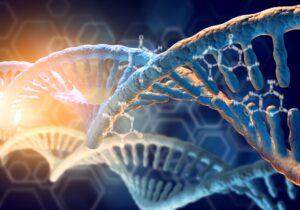The Importance of Glutamate before you Eat that next Piece of Steak
by Vanita Dahia
What does aggression, schizophrenia, motor neurone disease, seizures, ADD have in common?
The glutamate receptor plays an important role in synaptic plasticity, learning, memory, and the pathogenesis and pathophysiology of numerous neuropsychiatric disorders such as schizophrenia, depression, addiction, autism, autoimmune encephalitis, and neurodegenerative diseases such as Alzheimer’s disease.
Glutamate from your humble steak!
Glutamate is the most powerful excitatory neurotransmitter that is released by nerve cells in the brain. Over-excitation of these neurons can cause cell damage and and cell death, or as some would say, “the brain is fried”! As a result, glutamate is classified as an excitotoxin when it causes cellular damage.
Protein is essential to your diet. It can be a real issue if you’re on a fad diet and particularly, if you have mood issues. Glutamine is one of the most abundant amino acids found in any protein source in your diet.
Glutamate is an amino acid and the major excitatory neurotransmitter in the brain.
Research has continued to show that the consumption of diets rich in fat, deficient in magnesium, or high in monosodium glutamate can cause depression-like behaviours such as decreased social interaction.
Eat right, digest right
We need enough hydrochloric acid and pepsin in the stomach to break down proteins into its constituents called polypeptides. Otherwise, food particles will remain too large for the pancreatic enzymes to break them down for use and manufacture of essential amino acids.
An understanding of the diet, gut microbiome, gut-brain axis and glutamate link may be the next frontier in advancing our understanding of depression.
What are the Difficulties?
Indigestion medications like proton pump inhibitors such as pantoprazole or H2 antagonists such as Zantac are routinely and more popularly prescribed for reflux and indigestion. Unfortunately, we make less digestive enzymes and hydrochloric acid as we age; or if on medication, under stress or have chronic inflammatory health conditions.
Any exposure to heavy metals such as arsenic and mercury may inhibit the proton pump system in the stomach. Heavy metal exposure will further disrupt mental health, digestion and may manifest as chronic and complex diseases.
Sufficient manufacture of protease enzymes from the pancreas is needed to digest protein in order to have a great supple of amino acids necessary to synthesise neurotransmitters.
Pancreatic insufficiency or the lack of pancreatic enzymes can occur in conditions of:
- alcoholism
- diabetes
- pancreatitis
- cystic fibrosis
- haemochromatosis
The small intestine lining must be in a fit state to absorb the amino acids into the bloodstream. If you are gluten intolerant, have coeliac disease, ulcerative colitis, or Crohn’s disease, you are likely to have a leaky gut. Leaky gut allows for nutrients and toxins to leak from the gut into the bloodstream and poison the body.
Glutamine is an amino acid that makes glutamate, one of the prime excitatory neurotransmitters which in turn makes GABA, an inhibitory or calming neurotransmitter.
The Key Players
Mood, memory, speech, sleep and mental state are functions of the brain closely related to neurotransmitter balance. Two important neurotransmitters that act like a seesaw in dynamic balance with each other are glutamate and GABA.
Glutamate is an excitatory neurotransmitter which stimulates. Somebody who is glutamate toxic may be aggressive or irrational, and in severe cases, may experience seizures. Too much glutamate causes excitation and excessive nerve firing which leads to nerve damage.
GABA on the other hand, is an inhibitory neurotransmitter which calms the nervous system allowing for relaxation and maintenance of deep sleep. Low GABA may lead to disturbed sleep, slow speech, slow movement or anxiety.
The goal is to maintain and keep the excitatory and inhibitory neurotransmitter in balance.
Watch what you eat if you have a mental health condition!
If glutamate: GABA ratio is high, it is really important to reduce glutamate toxicity. The initial step in reducing glutamate toxicity is to reduce glutamine and glutamate containing foods as well as its related amino acids like aspartate and Cysteine containing foods.
Children are often over excitable, and may become irrational or uncontrollable as seen in ASD and autism syndrome. These children are likely to be glutamate toxic.
Remove or Reduce Neurotoxic Foods!
No need to let your children go ff the handle! Modify Glutamate containing foods in the diet!
Notable excitotoxic foods to avoid:
- yeast containing foods
- mono sodium glutamate containing foods
- excessive fermented foods
- vitamin E enriched foods
- corn syrup
- soy extracts
- hydrolysed foods
- baked goods
- protein supplements
- enzyme modified foods
- canned foods
- commercial sauces
- frozen foods
- fried foods
- fast foods
- processed noodles and soups
- processed meats, sausages, cold meats
- aspartate sweeteners
In summary, when glutamate reaches a certain level, neurological damage occurs.
Measuring Digestion and Glutamate
Glutamine, glutamate and GABA can be measured in a urine sample either together with other amino acids or with other neurotransmitters. The interrelationship of glutamine, glutamate and GABA with other amino acids and neurotransmitters will reveal the status of the mind and its physiological functions.
The value of amino acids cannot be overstated. Assessing the body’s absorption and utilisation of amino acids can be identifies by the measure of specific amino acids, leucine, valine and isoleucine with a simple DIY urine sample. Listen to Testing mental health or Test for Amino Acids.
Check the gastric secretory activity with the measure of fasting serum gastrin testing.
Test for Glutamate and its precursor amino acid Glutamine, its metabolite neurotransmitter, GANA with a neurotransmitter test.




